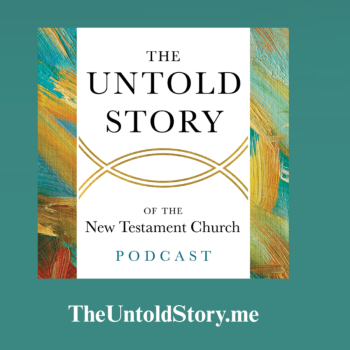Pure Heart, Loving Words
Jesus insists that harmful words express evil intentions that lead to harmful deeds. Scripture bears him out with its catalogue of murderous, adulterous, false, and thieving words. "It is not what goes into the mouth that defiles, but it is what comes out of the mouth that defiles."
What we eat is processed through our bodies and eliminated. It goes to the sewer.
There is a more complicated kind of waste management, one we often oversee poorly, with the result that lots of verbal sewage flows in our streets. What we say comes straight from our hearts. For Jesus' listeners, the heart was not a faculty separate from the mind, but the seat of emotions, intellect, will, and spiritual life. Our words come from our hearts and often they head straight for the heart of another. Words come from the heart and head for the heart. If the heart is a poisoned well, it has great potential to defile.
But a pure heart is a different story. "A person does not live by bread alone," Jesus corrects Satan, "but by every word that comes from the mouth of God"(Mt. 4:4). When we feast on the bread of life, Jesus our savior, our hearts are pure. And it is from a pure heart that loving words come.
"Blessed are the pure in heart," says Jesus in the beatitudes, "for they will see God" (Mt. 5:8). The Greek adjective katharos has connotations in the New Testament of clean, as in the clean linen shroud mentioned in Matthew 27:59. It connotes pure, in the sense of unalloyed, as in the pure gold of Revelation 21:21. The Old Testament background to the notion of a pure heart is Psalm 24:4 in which access to God's presence during Temple worship is for the one who has "clean hands and a pure heart."
"Those who have clean hands and pure hearts, who do not lift up their souls to what is false, and do not swear deceitfully, they will receive blessing from the Lord, and vindication from the God of their salvation."
Clean hands by themselves are not enough. Cleanliness may be next to godliness but it makes a poor substitute! The pure in heart are those who are spiritually pure rather than ritually or ceremonially clean. Blessed are those who are innocent of moral failures (deeds) and of evil intentions. Jesus, centuries before the advent of annual health checkups, is recommending that we all get our hearts checked!
The pure in heart are those who consistently, repeatedly allow God to cleanse them of these corruptions. They are those who allow God's light to shine in their heart (2 Cor. 4:6). They are trees that, out of their goodness, bear good fruit (Mt. 12:33-37). Jesus promises us that the pure in heart shall see God (Mt. 5:8). That is, they will have fellowship with and knowledge of God in the Kingdom that is to come.
The pure in heart recognize their need for God; they empathize with and extend comfort to others; their lives are graced by daily deeds of compassionate forgiveness to those who wrong them. When our hearts are pure, and our words are loving, our deeds usually follow. And when our words and deeds are loving, our lives have great power to heal and bring joy to those around us. We forgive, as we lift up, and, as Jesus often did with his words, we challenge injustice.
The flip side of Jesus' paradoxical proverb about defiling words is a positive insight about the power of purifying words. It is not what goes into the mouth that purifies a person, but it is what comes (from the heart) out of the mouth that purifies. That goes for both the sender and the receiver.
My Jewish friend at Penn State decided that her roommate was not being malicious, but had led a sheltered life. And she let it go at that in her own mind. When Debbie realized her mistake, she came to Laurel and apologized profusely. "I'm so embarrassed. I wouldn't blame you if you never wanted to talk to me again." Laurel replied, "I just figured this was beyond your experience, and once you learned more, you'd realize we're people just like you." Debbie said, "Thanks for the benefit of the doubt. Still friends?" Laurel nodded, smiling slightly. "But the next time you hear somebody else say something anti-Semitic, you're going to speak up, right?" Her new friend nodded vigorously.
It was January 1993 and New Year's Day had come and gone. Morrie Schwartz, a retired sociology professor from Brandeis University, knew this would be the last year of his life. He had been diagnosed with Lou Gehrig's disease several months before. He was using a wheelchair now and fighting time to say all the things he wanted to say to the people he loved. When a colleague at Brandeis died suddenly of a heart attack, Morrie went to his funeral. He came home depressed. "What a waste," he said. "All those people saying all those wonderful things and Irv never got to hear any of it."
Morrie had a better idea. He made some phone calls. He chose a date. And on a cold Sunday afternoon, he was joined in his home by a small group of friends and family for a "living funeral." Morrie had always been a warm, loving, demonstrative man. And their comments reflected the way his love had thawed their hearts through the years. Each of them spoke and paid tribute to their parent, spouse, friend, cousin, sibling, professor.





